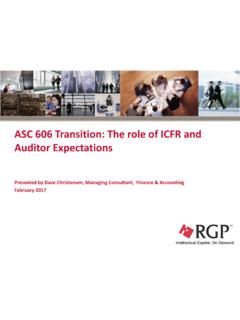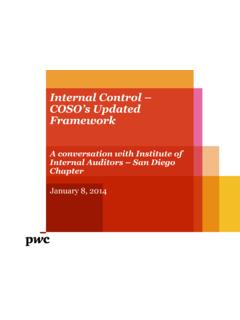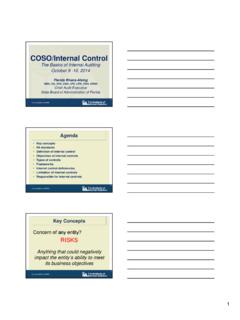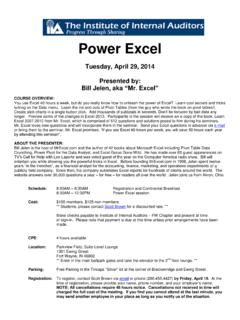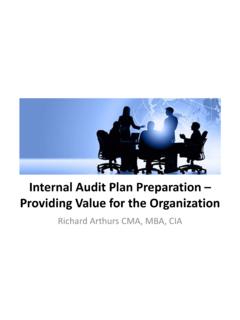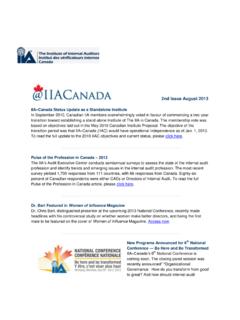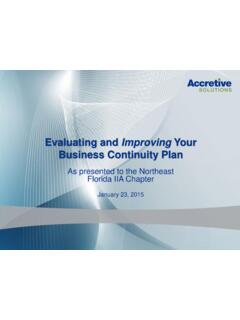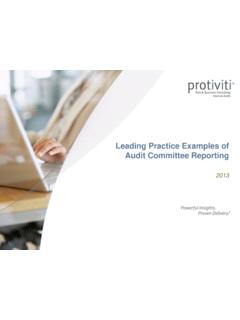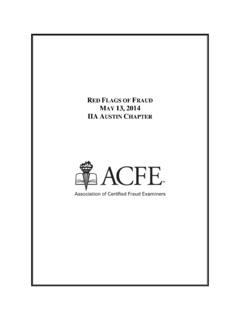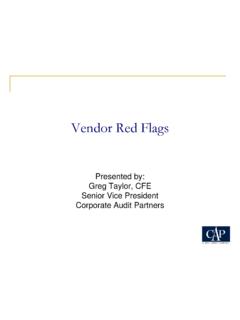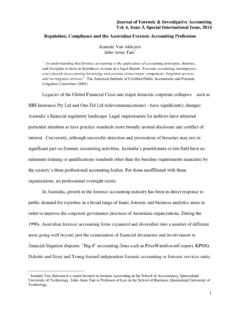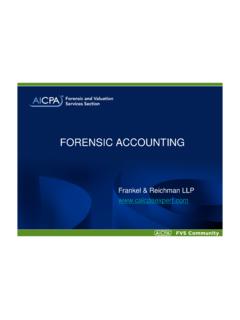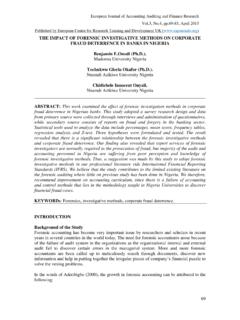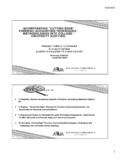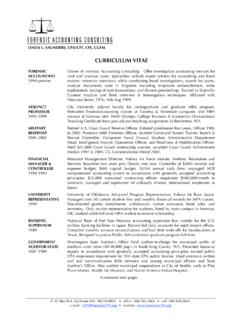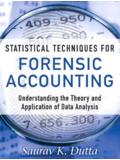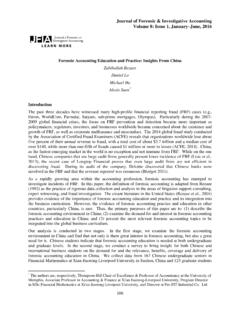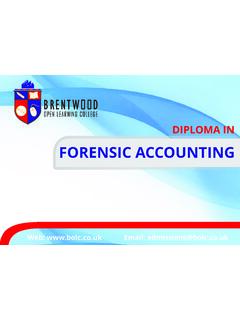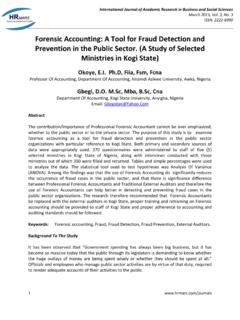Transcription of Forensic Accounting and Financial Statement Fraud Analysis
1 Presents: Forensic Accounting and Financial Statement Fraud Analysis Gwendolyn McDade, Instructor _____ October 25-26, 2016 MDU Resources Group, Inc. 1200 W. Century Avenue Bismarck, ND Course Description This course is designed to provide an overview of Financial Statement and Accounting Fraud including how it is committed and the motivation behind it. The course will provide participants with the Fraud knowledge and Forensic Accounting techniques necessary to identify Accounting and Financial Statement Fraud within their organizations. Real-life comprehensive Fraud case studies and the Forensic Accounting and Fraud examination techniques used to identify and quantify the frauds will be used throughout the course to further the learning process. Participants will work through Fraud case study examples and exercises. This interactive course will be taught through a combination of lecture, group exercises and class participation.
2 Learning Objectives Recognize the most common Financial Statement Fraud schemes Identify the red flags of Financial Statement Fraud Detect Fraud using Forensic Accounting and audit procedures Understand the Fraud implications of emerging issues in Financial reporting Understanding Fraud fundamentals used to identify Fraud within your organization. Knowing and understanding the Fraud tree schemes and identifying how they may manifest as Fraud scenarios in your organization. Understanding the characteristics of fraudsters to identify potential high risk departments or individuals. Who Should Attend Internal audit staff and management Financial auditors Internal control professionals Accounting Staff Financial Analysts Level: Intermediate Course Outline Fraud Basics The Fraud Triangle ACFE 2014 Report to the Nation Fraud & Corruption Statistics Fraudsters - Characteristics and Behaviors The Fraud Tree Schemes and Scenarios Analysis and auditing techniques for identifying Red Flags and potential Fraud Corruption - Financial Statement Fraud - Improper Revenue Recognition Concealed Liabilities and Expenses Asset Misappropriation Fraudulent Disbursements Techniques for Financial Statement Analysis Comparative Techniques Ratios Financial Relationships Cash Flow Understanding Trends and Patterns in Data How to spot them Understanding what the data is telling you Red Flags versus changes in the business Personal vs.
3 Professional Analytics and Forensic Accounting Techniques Regression Analysis Ratios Benford s Law Benish M-Score Indicies Reasonableness Testing Damerau-Levenshtein - Fuzzy Logic Example Data Analytics Techniques for: Accounts Payable Payroll Inventory & Fixed Assets Financial Statements Investigations - Basics for conducting a Fraud investigation Planning and conducting an investigation Analyzing Documents Covert investigations Sources of Information Forensics Useful resources for investigations Please note: The seminar is designed as a two-day course. Single day attendance is permitted; however, Day 2 programming builds on the materials presented on Day 1. Seminar Instructor Gwendolyn McDade, CPA, CIG Senior Fellow in Financial and Operational Auditing Gwen is a Certified Public Accountant, a Certified Inspector General, and a Certified Program Integrity Professional.
4 She has extensive audit and Financial management responsibilities in the private sector, non-profit, and government performing internal and external audits, in audit preparation and readiness, launching and sustaining internal controls, establishing finance and internal audit departments, implementing Accounting and audit systems, developing and documenting policies and procedures, and delivering operational results and training classes. As America s Region Internal Audit Manager at Motorola, she worked to implement global controls over $1 billion of inventory. In her four years as a Deputy Inspector General of Compliance at the Health and Human Services Office of Inspector General, she oversaw a budget of $10 million and led 200 auditors and nurses in ensuring that state and federal funds were used in accordance with applicable law. A Financial leader in industry and government, Gwen partnered with a $200 million Global Drivers business at Motorola.
5 She oversaw $100 million in revenue and $300 million in assets for a governmental risk pool, earning unqualified opinions of the annual Financial statements for eight years while ensuring the existence of effective internal controls and implementing an Accounting system. Gwen is able to convey her knowledge to individuals and national audiences. She trained agency auditors to audit the multi-fund college and university Financial statements, delivered training to the IIA and governmental risk pools on internal controls and compliance, and served as a mentor to aspiring leaders. Forensic Accounting and Financial Statement Fraud Analysis October 25-26, 2016 Company/Organization Address City State Zip Name E-Mail Address Telephone No. Which days are you attending?
6 Seminar Fee (See Above) Participant #1 25th 26th Participant #2 25th 26th Participant #3 25th 26th Participant #4 25th 26th Participant #5 25th 26th Participant #6 25th 26th Print additional registration forms for more participants. Amount Due Before Discount Less Group Discount (-10%) Total Amount Enclosed For Questions or Additional Course Information contact: Kim Reinke (701) 530-1023 .. Seminar Hours 8:30 4:30 Registration Fee Includes: Enrollment All course materials Refreshments, snacks & lunch The seminar is designed as a two-day course. Single day attendance is permitted; however, Day 2 programming builds on the materials presented on Day 1. CPE Credits 8 Credits (1 Day) or 16 Credits (2 Days) Seminar Fees IIA Members Non-Members 1 Day 2 Days 1 Day 2 Days $250 $425 $300 $475 10% Discount for Groups of 3 or More Mail Registration Form with check payable to: IIA Central NoDak Chapter PO Box 64 Bismarck, ND 58502-0064 A confirmation e-mail will be sent after Registration Form and payment have been received.
7 Refunds will not be made for cancellations received after October 21, 2016
